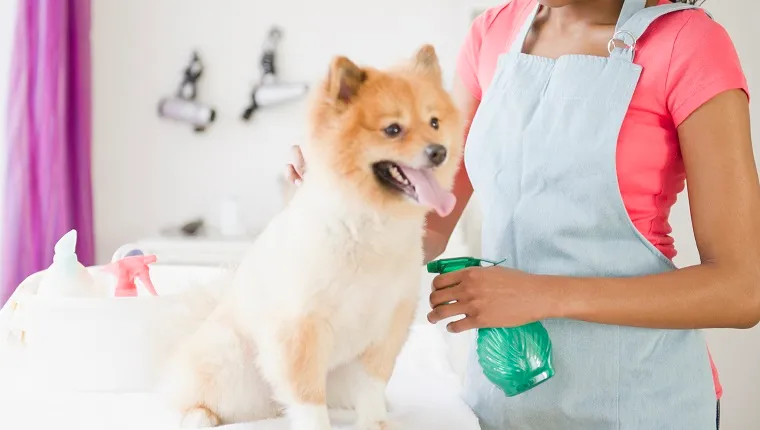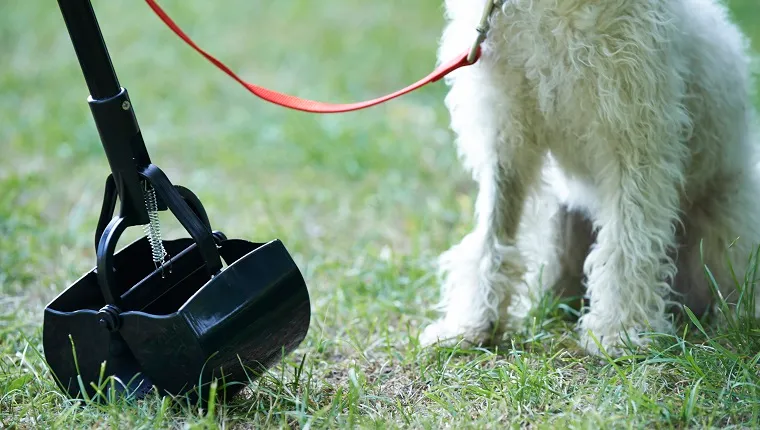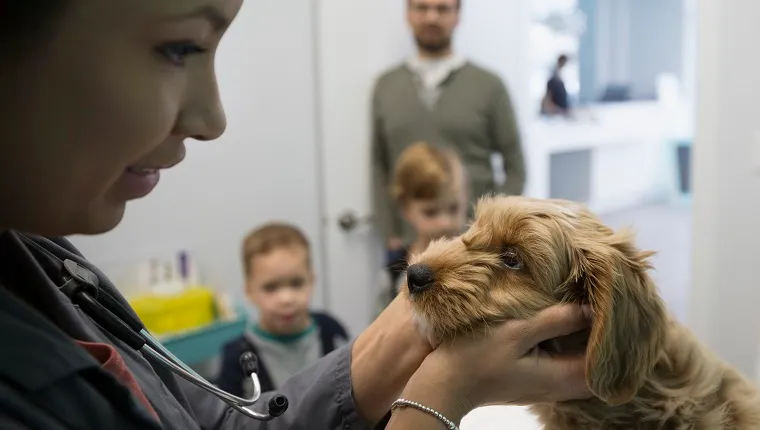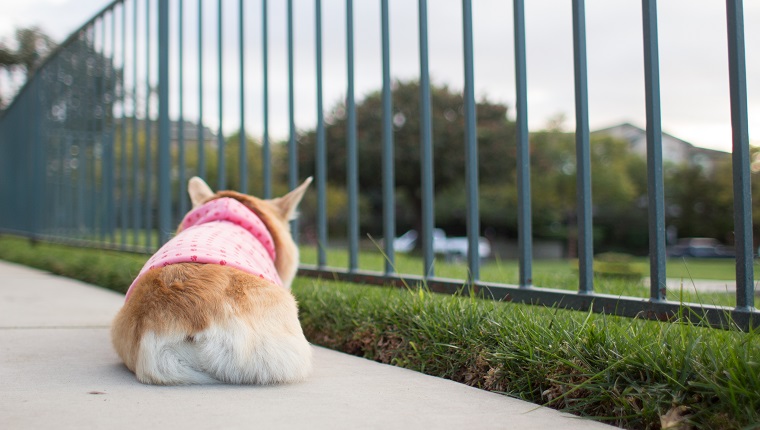By now, you’re probably very used to dealing with things that other people would deem gross or inappropriate for polite conversation, but as a dog lover, it doesn’t phase you at all to talk about poop. It’s an important topic, and that’s why we need to address it.
Poop can tell you a lot about your dog’s health and well-being, and that should matter more to you than sticking to comfortable subjects of discussion. Speaking of “sticking” to things, when poop sticks to your dog’s fur, it can be far more than a smelly nuisance.
Feces trapped in fur can lead to digestion problems, parasites, infections, and more. There’s even a term for the condition of poop getting matted in dogs’ fur around the anus — pseudocoprostasis.
If the condition isn’t remedied, then dogs may suffer from complete obstruction of the rectum, and that can be a big problem. So yes, we need to talk about this because it is important to your dog’s health, especially if you’re one of the dog parents who constantly finds themselves wiping their dog down after every potty break.
Here are a few ways you can prevent poop from sticking to your dog’s fur.
Trim The Hair Back There

One of the most common solutions to the poopy fur problem is to practice good grooming habits. This is especially true for those who have dogs with long fur. If the hair around your dog’s anus gets too long, it can start to trap fecal matter more easily.
When you don’t deal with it, the fur can start to mat and collect even more feces and bacteria. Eventually parasites and pests can also appear. Keeping the fur trimmed at all times can go a long way in preventing this.
If your dog feels a bit uncomfortable with you wielding clippers near their derriere — honestly, who wouldn’t be? — then you may want to try making grooming a more positive experience.
Provide your pup with rewards like treats and pets. Speak soothingly and reassuringly while you’re grooming. Take them for a walk or a trip to the dog park afterward.
The more positive associations you can make with grooming time, the easier it will be next time around.
You should try to keep the hair near the anus short. Also, make sure that poop isn’t getting stuck in the long fur of the back legs. If it is, then you may need to groom that area, as well.
Clean Up Right Away

If you see that poop is clinging to your dog’s fur, it is important that you clean it up immediately.
When poop gets stuck in the fur, it makes a sticky, matted mess that can cause even more feces to get stuck, and the problem can easily get out of control quickly. Have some moist wipes handy, and clean thoroughly to prevent more poop from collecting.
Additionally, if poop is getting stuck in your dog’s fur elsewhere, like around their paws or face, then it means your dog is stepping or rolling in feces.
The best solution is to clean up their environment. Make sure you are scooping their play area regularly. Your pup should never have to play in an area where there’s hazardous waste that could make them sick.
Change Your Dog’s Diet
Fecal matter can get caught in fur more easily when stools are too soft, loose, or runny. If you notice that your dog’s poop isn’t as solid as it should be, then it’s likely that your dog isn’t getting enough fiber in their diet.
It’s also possible that your dog requires more easily digestible food. Many dogs have individual nutritional requirements, much like humans.
Do some research into what your dog’s diet should consist of. Talk to your veterinarian or nutritionist about reformulating your dog’s diet to address their needs.
Check For Infections, Parasites, & Medical Conditions

Several medical conditions can cause stools to become loose and soft, especially conditions that cause frequent diarrhea. Intestinal worms, infections in the digestive system, and conditions like Inflammatory Bowel Disease can all cause poop to appear abnormally watery or loose.
Incontinence can also cause fecal matter to collect near the anus. Take a trip to see your veterinarian. Your vet may ask you to take a stool sample in for testing.
They should be able to find out what’s wrong and advise a course of treatment if the problem is a medical condition instead of a dietary or grooming need.
Deal With Physical Abnormalities Or Injuries
Some dogs are just built differently. When I was a dog walker, I took care of a French Bulldog with an unusual build. It was likely that this dog had been rescued from a backyard breeder or puppy mill situation, as deformities are common in those circumstances.
The Frenchie had a slight deformity in the pelvic region that caused the area below the anus to jut out a little bit, which resulted in poop getting stuck there after every bowel movement.
If your dog has physical abnormalities or injuries, then they might contribute to the problem of poop sticking to the fur. Ask your vet to check for these issues if all else fails. They may be able to provide a surgical solution or other ideas for treatment.
If the issue cannot be corrected, your vet can give you advice on keeping the area as clean as possible without medical intervention.
What other things have you done to prevent poop from sticking to your dog’s fur? What recommendations do you have for other dog parents with this problem? Let us know in the comments below!









